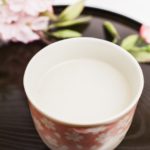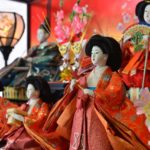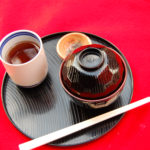「 japanese 」 一覧
-

-
15 Drinks You Can Buy Only in Japan
What kind of Drinks Can you buy only in Japan? When you stop by vending machines or convenience stores, you will find shelves full of colorful, nicely, but uniquely packaged drinks. Japanese convenience stores and vending machines have all sorts of drinks from refreshing tea to sweet soda to satisfy you and also offer a bit of surprise. Since canned, bottled, or paper-packed beverages got ubiquitous in Japan, beverage companies have improved the quality of every single drink and invented unique drinks that have never existed before. Also, universal drinks such as Fanta are sold with a subtle Japanese essence. ...
-

-
9 Traditional Japanese Masks and their Meanings
2018/01/28 japanese, culture, traditional, masks
Traditional Japanese Masks-History, Types and Meaning The Japanese people today are known to wear surgical masks in public for the protection of disease or for the feeling of privacy. As well as a modern type of masks, traditional masks have been playing an important role in the Japanese society. Traditional Japanese masks are either archetypes borrowed from myths and gods or representing emotions, and they have been used in Shinto shrine festivals, rituals, and traditional drama called Noh. Some of them are quite popular Japanese masks that you can still see today. History of Japanese Masks Masks were originally used ...
-

-
25 Japanese Curious Culture Facts; Introduction to Japanese Culture
Curious about Facts about Japanese culture? Japanese culture is often referred to “unique” and “distinct” from other parts of the world, especially western countries. There are habits, customs, traditions, and ways of thinking observed only in Japan, which catch many people’s interests. Japan is a country surrounded by the ocean, and not many contacts with other countries enabled Japan to develop cultures inside the country, which made Japanese culture distinct. Here we introduce 25 curious facts about Japanese culture which you may have not known. 1.Four different writing systems Japanese language has four different writing systems: hiragana, katakana, kanji, and ...
-

-
8 Different Types of Japanese School Uniform: Unique History and Design
2017/12/28 japanese, culture, school uniform, fashion, school
Let's learn about Japanese Seifuku (School Uniform)! Japanese school uniform is known for its fashionable appearance. Most schools in Japan have their uniforms, and the design varies depending on the school. For Japanese students, school uniform is not only for showing which school a person belongs to. It has become one of the fashion items due to the change of school uniform designs and fashion trends. Many Japanese school girls add accessories to their uniform to express their originality. Now, you will see how Japanese school uniform has been developed and changed over time, and how Japanese students enjoy their ...
-

-
Hinamatsuri - Japanese Dolls Festival for Girls
2017/12/27 japanese, culture, hinamatsuri
Traditional Japanese Doll Festivel "Hinamatsuri" Hinamatsuri is one of the annual events in Japan taken place on March 3rd, which has a long history back in as early as 10th century. As Hinamatsuri is also referred to Girl's day, families pray for the good fortune, health, and growth of the girls. Here you will enjoy the traditional custom of Japan with the exploration of the origin, practices, and food of Hinamatsuri. What is Hinamatsuri? Hinamatsuri, also called Doll festival or Girl's festival is a festival when people pray for health, growth, and happiness of girls. It takes place on March ...
-

-
25 Common Japanese Desserts that Amaze You
Top 25 Traditional Japanese Desserts: Wagashi! Few people might associate Japanese food with its desserts, but Japan has a wide variety of desserts from traditional Japanese sweets so-called Wagashi, to Western-influenced Japanese sweets. Japanese people are actually a big fan of desserts from small kids to adults, as much as they have a phrase "betsu-bara", or "second stomach", which means they can still have room for desserts even when their stomach is already full. Japanese were making sweets long before sugar had arrived to Japan. They created desserts using ingredients available to them, such as mochi, anko (sweet red bean ...